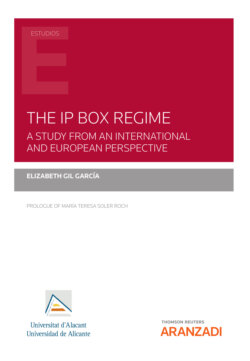Читать книгу The IP Box Regime. A Study from an International and European Perspective - Elizabeth Gil García - Страница 21
На сайте Литреса книга снята с продажи.
3.3. Technology transfer contracts
ОглавлениеUnder the term ‘technology transfer contract’, the author refers to one of the channels of knowledge transfer, which is restricted to the field of technology, i.e. intellectual property rights. In particular, these types of contracts may refer to the right to use IP or to the alienation of IP. This means then that the transfer will take the form of a licence contract (royalties) or of a transfer (or assignment) contract (capital gains). While the right to use IP is granted under a licence contract (or agreement), the alienation of IP implies the definitive assignment of the ownership of IP. In consequence, transactions where the IP is not licensed but alienated are not covered by article 12 of the OECD Model but by article 13 instead.87
In general, patents, trademarks, industrial designs and other IP categories may be transferred (e.g., sale, barter, donation, etc.) and can be a matter for other rights in rem, licenses, other legal transactions, etc. Under a licence contract, the IP owner (the licensor) grants to another person (the licensee) the right to exploit the IP, usually against remuneration (license fee). Moreover, in several jurisdictions (e.g., Italy or Spain), the sub-licensing of IP is also allowed under certain conditions.
As it is commonly held, the licence can be an exclusive one, which means that only the licensee can use the IP, or it can be granted on a non-exclusive basis. The latter is precisely required by the Commission for those undertakings benefiting from an R&D State aid related to COVID-19 under the amended Temporary Framework approved in April 2020.88 In such a way, the research results may be exploited not only by the owner but also by other persons.
On the other hand, non-patented inventions, such as know-how or secret formulas, can be also object of technology transfer contracts. For instance, in Italy, the agreements for the transfer of secret information have been recognised.89 In general terms, there is no legal impact for persons not patenting or registering an invention, that is, they keep it as a trade secret right or know-how.90 Know-how may be defined as a set of (non-patented) knowledge, information or skills considered secret and essential for certain processes.
